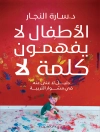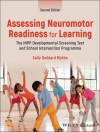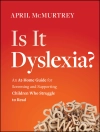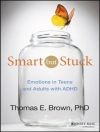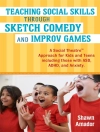This book addresses a wide range of issues situated in the core of theoreticians’ and clinicians’ work in the field of giftedness. It gathers practical issues, relevant for the lives of many gifted children, adolescents and adults, from a neuropsychological point of view. By studying the basic questions in gifted education through a neuropsychological lens, this book aims to establish a uniform new way for the treatment of gifted children with social or emotional difficulties, learning disabilities, physical limitations, or psychological and psychiatric disorders.
This book helps educators and mental-health professionals to obtain a deeper understanding of the neurological system and its role in learning. This includes memory, knowledge-processing, making connections, and the implications on the cognitive, emotional, and physical aspects – all of which play major roles in the life of each gifted child and adolescent. By acquiring this new knowledge, more teachers, counsellors, psychologists and psychiatrists will be able to help individuals materialize their giftedness, while preserving their mental health and productivity.
Tabla de materias
Foreword.- 1. Supporting and encouraging the versatile gifted child or adolescent; David.- 2. ‘Keeping the light on’ – rather than turning it off for gifted children with overexcitabilities’; David.- 3. Treating the profoundly gifted; Gyarmathy.- 4. Neurodiversity and supporting autistic-gifted child and adolescent; Gyarmathy.- 5. Understanding gifted children with executive dysfunction and helping them; Gyarmathy.- 6. Counselling, treating, and helping gifted children with specific learning difficulties; Gyarmathy.- 7. Teaching and instructing the bi- or tree-lingual gifted student; David.- 8. Understanding and supporting the homosexual and trans-sexual gifted adolescent; David.
Sobre el autor
Hanna David received her Ph D from Ludwig Maximilians Universität, München and was a college lecturer in Psychology and Literature. Her undergraduate studies included mathematics, physics, and Hebrew literature. She is currently a counselor for gifted students and their families; lecturer in national and international conferences of psychology, education and giftedness, and an expert evaluator for the European Commission. David has published 18 books and 200+ research works. She is also a licensed Pilates instructor.
Eva Gyarmathy focused her Ph D thesis written in 1996 on talent associated with specific learning difficulties. As researcher, university teacher and psychotherapist her activity directs toward the care of the profoundly gifted and multiple-exceptional talents. She is a consultant to schools that serve gifted children and adolescents who could not be integrated into mainstream schools. She founded the Atypical Development Methodology Centre, the Adolescent/Adult Dyslexia Centre and the Special Need Talent Support Council.


